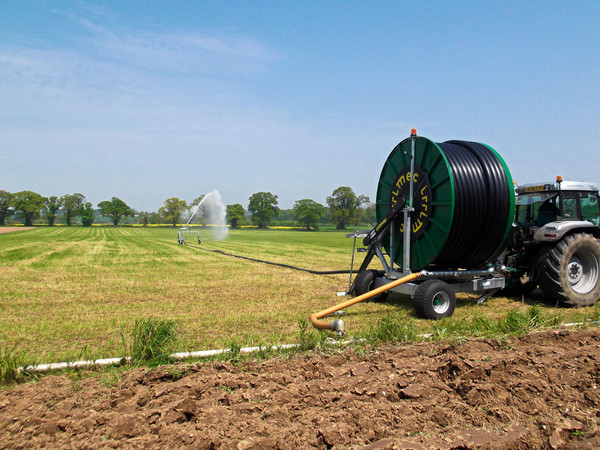
The agricultural mechanisation for the Eco-energy transition
Stakeholders and public decision-makers met in Rome on 30 January to discuss the issues that emerged from the Nomisma Report on the "Ecological-energy transition in the agri-food sector". Farms are willing to invest in eco-sustainable technologies but have to deal with several critical issues
On 30 January, a conference entitled "The ecological-energy transition in the agri-food sector" was held in Rome with a view to developing a debate on the tools, best practices and support policies with which the Italian primary sector can achieve the objectives of the European Green Deal. The topic, introduced by Nomisma's Head of Agri-food Denis Pantini – was discussed by important stakeholders in the primary sector such as Mariateresa Maschio, President of FederUnacoma; Gennarino Masiello, President of ONT; Federico Vecchioni, CEO of Bonifiche Ferraresi; Cesare Trippella, Head of Leaf EU Philip Morris Italia. The panel, moderated by the Honorable Paolo De Castro, MEP in the Committee for Agriculture and Rural Development, was also attended by institutional representatives of Public Research and the Government, including Pina Picierno, Vice-President of the European Parliament; Mario Pezzotti, Extraordinary Commissioner of Crea and Director of the Research and Innovation Centre of the Edmund Mach Foundation; Luca De Carlo, Chairman of the Senate Agriculture Committee.
Eco-energy transition, operators' perceptions. The event in Rome stems from a recent study conducted by Nomisma through an analysis of the rural context – national and European – based on the collection of system data and subsequently on the administration of questionnaires addressed to Italian operators in the sector. The elements that mainly framed the study were those related to energy efficiency and the use of RES together with the sustainable use of fertilisers, pesticides, water as well as technological innovation, modern mechanisation and digitalisation. The questionnaires, addressed to a vast and heterogeneous audience of operators in the agri-food sector, were answered by 373 companies distributed throughout Italy (31% North-East, 27% North-West, 23% Centre and 19% South and Islands) representing a wide range of companies in terms of size and turnover. The areas of greatest in-depth analysis of the "survey" addressed by Nomisma to the aforementioned companies were those relating to awareness and perception of ecological transition objectives; investments made in connection with the ecological and energy transition, already made by companies; knowledge of technological and digital tools and innovations in the agricultural and food sectors; the evaluation of the expected results obtained thanks to the innovations; the main obstacles that have not allowed the adoption of innovation for the purpose of the ecological/energy transition. The aim of the study was to identify the necessary and strategic skills and to identify the needs and expectations related to this path.
71% of farms invest in eco-energy. The results, which are very encouraging, show that a very significant number of companies are operating – or are about to operate – in a framework of strong commitment oriented towards the sustainability of production processes. In fact, the Nomisma survey shows that the majority of companies – 71% – have made investments in eco-energy technologies, while a further 13% plan to do so shortly. Only a minority of operators, just 16%, believe that they should not do so. The innovative agricultural guidelines for sustainability focus in particular on energy aspects (reduction of consumption and renewable sources), the prudent use of chemical inputs, the enhancement of resources (recovery of residual biomass and water savings) and soil protection (conservation of biodiversity and fertility).
In this perspective, farmers assign a central role to technological development and farm modernisation. Digitalisation and mechanisation, especially when integrated into precision farming practices, are the tools considered most suitable for the eco-energy transition.
Another interesting aspect of Nomisma's research concerns farmers' perceptions of the relative difficulties to be overcome in order to achieve the targets set for 2050 by the Green Deal. The economic cost of investments, bureaucratic complexity, regulatory deficiencies, insufficiency of public facilitation tools, inability to create a system with supply chain agreements, are – according to operators in the sector – the main obstacles they face on the road map of the eco-energy transition.
Digitalisation at the service of sustainability. Digitalisation to support agricultural production is already a reality and integration with agricultural machinery makes production more sustainable: 32% of companies in the sector said they use vehicles with assisted or semi-automatic driving with integrated GPS, 25% have company weather stations, 19% use intelligent systems for phyto-sanitary defense. All this – explained the speakers at the conference – shows how important investments in the latest generation technologies, especially if digital, are to make the company not only more performing, but also more sustainable. In her speech, the president of FederUnacoma, Mariateresa Maschio, pointed out that agricultural and forestry mechanisation can make a valid contribution to sustainable development by working with seriousness and commitment on multiple fronts. The manufacturers of mechanical vehicles for agriculture – underlined Maschio – work assiduously to innovate the machines in terms of production efficiency through the reduction of consumption and the use of renewable fuels; to equip mechanical means with intelligent systems that allow them to contain all production inputs; to inform and train technology users; to facilitate the dissemination of knowledge of good practices, including through participation in European programmes and the organisation of events and exhibitions. In the closing remarks of the conference, the president of the Senate Agriculture Committee recognised the undisputed role of farms in the path of sustainability-oriented development. "No transition is possible without the essential contribution of the primary sector," said De Carlo, "which is caught between the green shift and the increase in the cost of raw materials. This is why it is essential to support any investment that is useful for innovating production processes and generating renewable energy." "The sustainability goals set by the Green Deal, although shareable, are decidedly ambitious and cannot be left to farmers alone without providing specific tools and interventions to support them. That is why - De Castro added - we have requested, and obtained, that Europe allocate a significant share of the Next Generation EU funds to investments in innovation and for the energy transition in farms."








